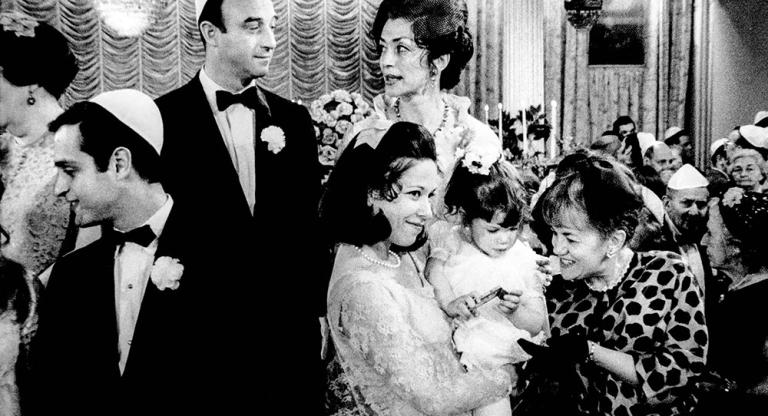If you turn on any streaming service nowadays, you’re likely to encounter a plethora of true-crime content, ranging from awards-hungry highbrow mini-series to dime-a-dozen cable TV shows staining the bottom of the barrel. In addition to documentaries, there’s plenty of dramatic retellings, in which acclaimed actors portray various demonized figures that linger in our cultural memory, from serial killers to presidents’ mistresses. These works often purport to revisit such people and incidents with fresh eyes and the wisdom afforded by hindsight in an attempt to better understand those who have transgressed social mores in such major ways. In his latest feature, May December (2023), Todd Haynes uses this groundwork to explore and explode notions of villainy, truth, and public vs. private selves.
Natalie Portman plays Elizabeth, a famous TV actress who travels to Georgia to meet the subject she’s about to play in a movie: Gracie Atherton (Julianne Moore), a housewife who, when she was 36, covered the front pages of every tabloid because of her affair with a 13-year-old boy. Her lover/victim, Joe Yoo (Charles Melton), is now 36 himself, and he and Gracie are married all these years later. Their love survived Gracie’s prison sentence and the ire of the nation, and they now have a picture-perfect family in a beautiful Savannah home to show for all their troubles. As they are determined to show Elizabeth, they’re unphased by the occasional box of feces left on their doorstep, or by the fact that they still see the casualties of their affair, like Gracie’s very troubled older son, around town.
Both women are highly scrutinized public figures, one notable and the other notorious, both ultimately unknowable to us and to one another. They are also, as the film progresses, shown to be equally slippery and manipulative. Our perception of them changes from scene to scene, if not from moment to moment. Moore plays Gracie with a gentle girlishness and a superficial naïveté that those around her have trouble navigating. Her family tiptoes around her backhanded compliments and nitpicking tendencies because they know she is perpetually one small bruise away from crumbling. Her vulnerability may stem from deep-rooted trauma, but it’s also a weapon she uses to control others, refusing to take responsibility for her actions. Portman, no stranger to playing women struggling with the strain of endlessly performing (Jackie, Vox Lux, Black Swan), is there to learn about the “real” Gracie, but also has to play the role of refined and gracious actress. Everything she says to anyone she meets is a line delivery, carefully calibrated to sound humble yet convey that, yes, she knows her life is not like everybody else’s. It’s the inverse of what Gracie has spent decades trying to prove to the town that she and Joe refuse to leave: their love story may be unconventional, but if it’s lasted this long it couldn’t have been abuse. Right?
Gracie is undoubtedly based on Mary Kay Letourneau, the real-life teacher who began a sexual relationship with her middle-school student and became the source of national tabloid ridicule in the mid-’90s. Moore even recreates some of Letourneau’s widely-published trial photos and her signature childlike lisp, which Portman in turn attempts to emulate. The women circle each other, dancing around the fact that they have no reason to trust what the other says: Elizabeth must be passing judgment on Gracie, even if she claims to be a neutral party interested only in accurately representing her subject. And Gracie must have something inside her to explain her past transgressions, a code waiting to be cracked, even though she swears it was Joe who rescued her from domestic prison, likening herself to a damsel in distress waiting helplessly for her dashing teenaged prince to come. Elizabeth studies her muse: taking notes on the makeup Gracie uses, learning how to bake her pineapple upside-down cake, and exploring the scene of the crime (the supply closet in a local pet store where Joe was Gracie’s employee) as if it’s a preserved tomb.
Portman and Moore are at the apex of their respective powers, but Melton deserves much attention for his performance as Joe. The 32-year-old actor is best known for playing the teen jock Reggie on the CW series Riverdale (2017–2023), which perhaps contributes to his ability to embody a delicate boy within a grown man’s body, a person suspended in adolescence from the day he met Gracie. In a film that treats its two main subjects with distance and suspicion, Joe is the one figure in the twisted triangle who is presented through an unmistakably sympathetic lens. Joe’s personal passion is replenishing the monarch butterfly population,caring for their chrysalises until the butterflies hatch and then settling them free. The metaphor isn’t the most subtle, but it’s a sweetly sad motif that pulls the viewer’s attention back to Joe, forcing them to contemplate the innocent person he was, and in a way still is, and how no one protected him until he was ready for the world. When Elizabeth inevitably takes advantage of this innocence (certainly not as egregiously as Gracie has but heartbreakingly, nonetheless) the knife twists even deeper. When the Atherton-Yoos’ facade fully cracks, Joe attempts to broach the subject of his and Gracie’s relationship and how it began, hoping to have an honest conversation with his wife. As he trembles and stutters, it’s clear that he has never stood up to her. His wife’s reaction leaves us wondering whether he’ll ever try again.
Todd Haynes is a master of tone. May December is at once emotionally penetrating and cerebral, tragic and savagely funny. Throughout, Haynes manages to not undercut the seriousness of abuse. It’s a tough time for making art around themes of grooming and sexual assault; these concepts are in the cultural zeitgeist in ways that are politically polarizing and often exploitative. But May December speaks to this moment of unpacking trauma and relitigating sordid events from our past with a sense of independence, from a certain remove from the fray. A big part of this is the music, which as Haynes has mentioned in interviews, is a reworking of Michel Legrand’s score for Joseph Losey and Harold Pinter’s The Go-Between (1971), another tale of forbidden love. The jarring minor-key piano communicates from the film’s opening that we are not operating in our world and keeps the audience on alert, never sinking into complacency. May December is likely to be regarded as a major work within Todd Haynes’ oeuvre, one that sits within the modes of melodrama that have long fascinated him, yet is tuned to a register all his own.
May December runs all week at the Smith Rafael Film Center and Landmark Opera Plaza.
Previously:
May December screens tonight, October 7, and on October 14 in the New York Film Festival




